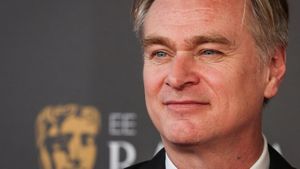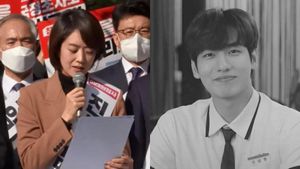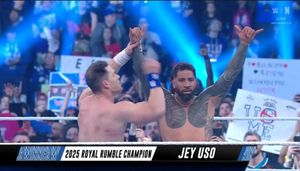Ukrainian President Volodymyr Zelenskyy has warned against the exclusion of Ukraine from negotiations between the United States and Russia concerning the war raging in his country. Speaking during an exclusive interview on February 1, 2025, with The Associated Press, Zelenskyy described the potential sidelining of Ukraine as "very dangerous." His remarks come amid increasing tensions and discussions surrounding efforts to find common ground on ending the conflict.
Zelenskyy's observation highlights not only the urgency of including Kyiv in any discussions concerning its future but also the necessity of developing concrete plans aimed at achieving a ceasefire. "We need more discussions between Kyiv and Washington to develop a plan for a ceasefire," he stated, emphasizing the need for direct involvement and collaboration.
During the interview, which spanned over an hour and took place in Ukraine's capital, Zelenskyy expressed his discontent at Russia's current stance, indicating the Kremlin's hesitance to engage authentically on ceasefire talks, which they perceive as admitting to defeat at this stage of the conflict. He noted, "Russia does not want to engage in ceasefire talks or to discuss any kind of concessions," shedding light on the challenges faced as negotiations loom.
Zelenskyy pointed to recent comments made by former U.S. President Donald Trump, who mentioned on Friday, before the interview, the existence of discussions between American and Russian officials aimed at ending the conflict. "They may have their own relations, but talking about Ukraine without us — it is dangerous for everyone," Zelenskyy remarked, underscoring the inherent risk of making arrangements about Ukraine's fate without its involvement.
Further stressing the importance of dialogue, Zelenskyy indicated his administration's intentions to actively engage with the Trump administration on various issues. According to him, communication has occurred, but predominantly at a general level, and he anticipates more targeted discussions to soon follow. "We need to work more on this," he added, referring to the necessity of tangible agreements to end the hostilities.
The backdrop of this interview frames the Ukrainian conflict as it approaches what Zelenskyy described as being at "a crossroads." He outlined how much has changed since Trump's previous assertions about resolving the conflict rapidly upon taking office. The reality presents different challenges, with Russian forces making steady gains along the front lines and Ukrainian troops suffering significant manpower shortages.
While Zelenskyy voiced his concerns about the unstable dynamics of the war, he also mentioned the desire among many Ukrainians for relief from the incessant conflict, highlighting the devastation brought upon the country through routine assaults and destruction of homes.
The question looms: how can peace discussions be framed effectively when one party feels excluded? Zelenskyy believes not only should the U.S. take part, but also the European Union needs to be engaged. He conveyed his support for incorporating their influence, saying, “...a European Union voice should also be there. I think it would be fair and effective. But how will it turn out? I don’t know.”
Expressing worries about allowing President Putin to dictate the war’s direction, Zelenskyy stated any potential agreement would carry risks for future aggression if security guarantees aren’t obtained from allies. He remains firm on NATO membership being Ukraine's optimal choice for security assurance. Emphasizing NATO's role, he argued the alliance's collaboration would be beneficial not only to Ukraine but also for the U.S. as it entails bolstering Trump’s geopolitical strength.
“...these are the cheapest security guarantees,” he reasoned, insisting on the necessity of the U.S. making decisions independent of Russian preferences. Zelenskyy stressed, “I really believe... this is a great victory for Trump,” appealing to those who appreciate narratives of success and dominance.
The discussion also touched on broader issues, including Zelenskyy's acknowledgment of French proposals aimed at inserting European forces within Ukraine to deter Russian ambitions. While he recognizes this proposal's potential, he expressed skepticism about the logistics and authority such forces would possess, reiteratively raising questions around operational control and engagement mandates during escalations.
Finally, Zelenskyy called attention to U.S. Secretary of State Marco Rubio’s assertion stating the war could set Ukraine back 100 years, urging Rubio to witness firsthand the devastation caused by the conflict, advocating for him to visit and understand Ukraine’s plight and resilience.
Zelenskyy’s remarks paint the current state of the Ukraine conflict through the lens of urgency, inclusion, and the high stakes surrounding any discussions concerning peace. His conclusion remains poignantly clear: dialogue is undeniably necessary to avoid missteps and miscalculations for all parties involved.



